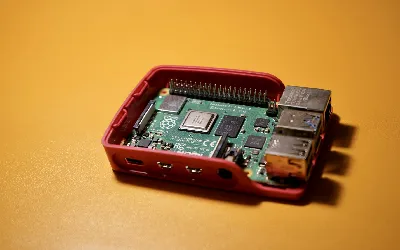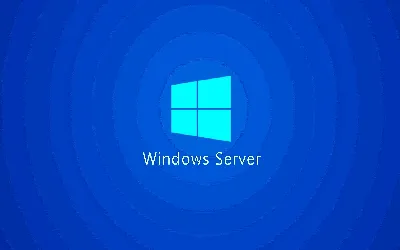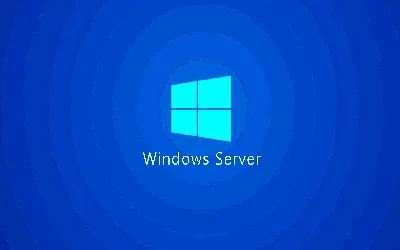Here is a step-by-step guide that shows you How to Install and Deploy a Network Driver on Windows Server
The Network Controller Server Role needs to be configured on a Windows Server to manage and orchestrate all forms of networks. In other words, with the given feature, you could go ahead and control the different components of your network firewall, switches, and the router all from the single console. Below is the procedure for installing and creating a network controller on Windows Server:
What is the network controller role in Windows Server?
Network Controller is a highly reliable, scalable server role in Windows Server to manage both real and virtual networks from one place. Here, the administrator defines policies that will be in use for network management across services or devices and provides an overview of network incidents or connections.
Read more about the various types of network adapter here.
Setup Network Controller on Windows Server
What follows are the steps to be followed to install and deploy a Network Controller on a Windows Server.
Create a Protection Group
Install the Network Controller
Deploy a Network Control System
We must discuss them in detail.
Step 1: Create a Security Group
Active Directory Security Group creation is a pre-requisite to the deployment of the Network Controller. Do it by following the following steps.
To create a security group, expand your domain in Active Directory User and Computer, then right-click the organizational unit you would like to add the group to, then select New > Group.
You will name the group here (Example: "Network Admin"), set the scope to "Global", then select the group type.
Right-click and select properties on the group.
Having clicked Members > Add, under "Enter the object names to select," enter "administrator," then select Check Names. You can add other users as you feel appropriate.
Create a new group and add those just created above; name it Network Ops.
Then, we can request a certificate from an Enterprise Root Certification Authority by starting the Certificate Enrollment Wizard on the server, selecting a certificate template suitable for network controllers, and completing the wizard. Once the certificate is issued, download and install it on the server to ensure secured activities on it.
Step 2: Configure the Network Management Console
As stated before, Network Controller is a role in Windows Server. Being not pre-installed, the installation of the software has to be our first job. If you want to replicate this, just follow these steps.
Start the Server Manager.
Move to Manage to add roles and features.
When the wizard to add roles and features displays, click next.
Click Next after confirming that you want to install based on roles or features.
Next After the selection of the server from which you want to make a choice, tap the "Next" icon.
Select Network Controller from the dropdown presented in the Server Roles tab and then click Add Features, and click Next.
We can click Next in the Features tab because we installed all the necessary features already.
Read the information provided after reaching the Network Controller tab then click Next.
At the destination server should be restarted automatically make sure that is checked then click Install.
The install process is long so please be patient. After completion, go back to Step 1.
Network Controller Deployment (3er
The Network Controller cluster has to be configured before deploying it. First of all, we need to create a cluster node. Run the following command in an elevated prompt of PowerShell in order to do so.
Run the following command: New-NetworkControllerNodeObject -Name -Server -FaultDomain -RestInterface [.]
Here, we are providing the name of the node which acts as the controller of the network.
Name of the server that will host the network controller node; this is also known as the fully qualified domain name (FQDN).
FaultDomain: You can specify the fault domain of the node. Servers are grouped into fault domains based upon shared dependencies in power and networking supplies. This further reduces the likelihood of the failure of those servers.
The RestInterface property specifies which server network interface will be used to receive REST requests.
The NodeCertificate property defines the current node certificate. Useful for encrypted chats, this is entirely discretionary.
Now, configure the cluster by running the following command.
ClusterAuthentication -Node Install-NetworkControllerCluster group named "Management Security"Location of diagnostic logAttribute for LogLocation Certificate for CredentialsCredibility of the person running this cmdlet[Thumbprint of the Certificate] [-SSLUsage](Name of the computer)LogSizeLimit in megabytes no. of days log time can be stored
Node: Specifies a group of NetworkControllerNode objects representing the nodes of the cluster.
ClusterAuthentication—Specifies the authentication type that the cluster is to use. Possible values include None, Kerberos, and X509Certificate.
The ManagementSecurityGroup property specifies the group of administrators who manage the Network Controller.
The DiagnosticLogLocation property defines the location of diagnostic logs.
The LogLocationCredential property specifies the credential for accessing the log location.
CredentialEncryptionCertificate: This is a certificate used for specifying credential encryption.
Credential: The credential of Network Controller.
The CertificateThumbprint property contains the thumbprint of the Network Controller's certificate.
Ensure that all communications use Secure Sockets Layer (SSL).
"ComputerName" defines the name of the machine on which this cmdlet will run.
LogSizeLimitInMBs defines the maximum size in megabytes that log files can have.
Determines the maximum number of days that log files can be retained.
With this tutorial, we hope you have learned to install and deploy a network driver within Windows Server. Without further ado, we wish you the best.
To learn how to install and configure Windows Server Essentials Experience, here is a complete guide.
If you are wondering how to configure IPAM on Windows Server, here is a guide with the best answer.

If you don't know how to use ChatGPT on WhatsApp, here is a guide that will help you with it.

Today in our guide we show you How to install MongoDB on Windows 11 in a simple way.

Here we leave you a step-by-step guide so you can learn How to make a backup of Raspberry Pi.

To learn how to install and configure Windows Server Essentials Experience, here is a complete guide.

If you are wondering how to configure IPAM on Windows Server, here is a guide with the best answer.

Today in our guide we show you How to delete, remove, increase and disable ChatGPT memory.

If you don't know how to download mouse drivers for Windows 11, here we leave you a complete guide that will help you.

Here we leave you a complete article so you can learn How Camp Pets Work in Fallout 76

